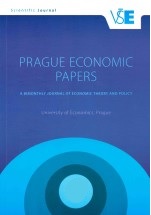The Effect of Economic and Social Inequalities on Academic Success in Türkiye: Evidence from the Classical and Bayesian Discrete Choice Models
The Effect of Economic and Social Inequalities on Academic Success in Türkiye: Evidence from the Classical and Bayesian Discrete Choice Models
Author(s): Muhammet Kutlu, Özer HüseyinSubject(s): Economy, Education, Sociology, School education, Methodology and research technology, Demography and human biology, Economic development, Socio-Economic Research
Published by: Vysoká škola ekonomická v Praze
Keywords: economic and social inequality; academic success; discrete choice models; Bayesian econometric approach
Summary/Abstract: The main objective of this study is to determine the effects of economic and social inequalities on academic success and to test whether the cycle of inequality is active through education. This objective is accomplished using classical and Bayesian discrete choice models for the sample obtained from Türkiye. The results reveal that students’ economic and social characteristics affect their academic success and that these characteristics are possible sources of inequality in education. According to the findings obtained from models employed in the study, income, private school education, parental education level, region of residence, neediness to work, and the level of happiness with the family were found to have statistically significant effects on student success in getting into the desired university department and university placement ranking. Additionally, the results are compatible with the studies that report that the Bayesian approach yields more stable and appropriate results with smaller standard errors and confidence intervals.
Journal: Prague Economic Papers
- Issue Year: 33/2024
- Issue No: 3
- Page Range: 336-356
- Page Count: 21
- Language: English

